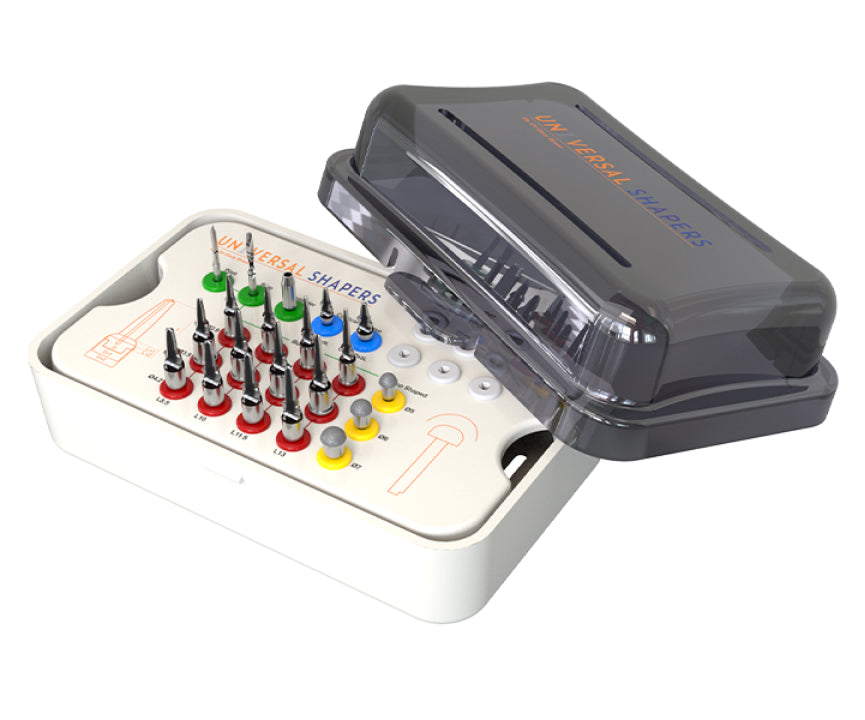Universal Shapers
Couldn't load pickup availability
-
“Bullet” Shaped Drills.

-
Scallop Shaped Drills (SS drills).

-
Cortical Release Drills (SR drills).

-
Auxiliary Drills: pilot
- a. Pilot Drill
- b. Twist Drill
- c. Extension Drill
The drills work with any handpiece and implant system. When using, always refer to diagram 1.

- The “bullet” portion of this drill represents the length (L).
- The base of the “bullet” portion of the drill represents its diameter (D).
- The flared portion of the drill adds to the length of the osteotomy in 1mm increments, as well as, adding to the diameter in 1mm increments.
Working In Soft Bone (Type III, IV)
It is recommended to undersize your osteotomy while working in the soft bone
For example, if you prep a D5 x L10 osteotomy in the soft bone, use a D3.5 x L8.5 drill.
- The flare adds an additional 2mm to the length, leaving an implant submerged 0.5mm subcrestally.
- It also adds an additional 2mm to the diameter, leaving a 0.25mm crestal-release ring around the future implan
This way, one can avoid any additional pressure on the crestal, while creating stability in the cancellous portion of the bone.
Working in Hard Bone (Type I, II)
It is recommended to create a flare either using the bullet drills or scallop shapes (SS drills) in order to achieve a cortical release ring around the implants, thereby avoiding any pressure and future bone loss.
Cortical Release (CR) Drills
Used to release the cortical portion of the osteotomy without altering the density of the cancellous bone.
It is designed for use with any implant system, when additional release is needed to advance the implant placement.
Cortical Release (CR) Drills are used for bone profiling when placing healing abutments or accommodating multi unit abutment in ALL-ON-X CASES.
Scallop Shaped (SS) Drills
Used for the sculpting and shaping of the “bedding” for the future restoration
Also used for bone profiling
The Extension Drill is supplied for better access when working with long adjacent teeth (anterior maxilla).
Scallop shapes, also widely used in sinus augmentation for a more safe and predictable lateral approach ( opening a “window”).


